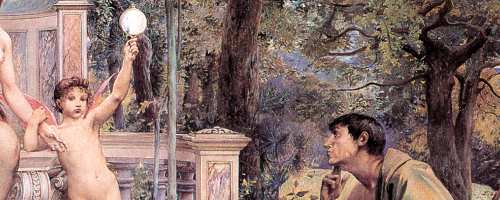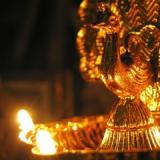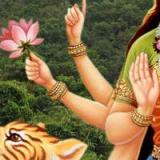
Is there such a thing as truth? A very complex question if you really think about it, and quite impossible to answer without trying to define what truth is. Ask a random group of friends the question “What is Truth?“, and you will be greeted by a variety of replies ranging from blank stares, to utter confusion, to concerned queries about your love life. After all, the truth is just the truth and that’s all there is to it.
A Question
I have always wanted this site to be a conversation rather than a lecture. I’m happy to say it has worked out quite successfully so far, with many people asking me questions through the comments and the contact form. Mostly it’s practical advice on photography, cameras, design etc., and it’s often something that requires a personal reply. But sometimes it gets more esoteric, and of more universal interest. A few days ago Paul J. Richardson left me this doozy:
Most formulations of shareable “knowledge” since Plato’s original JTB definition, are just knit-pickn refinements – ignoring of course, magical and illogical ones, such as implantation by God(s). How can we avoid circular reference back to knowledge when ‘proving’ (arguing) that truth exists or is possible?
Thanks for the question, Paul. I had to mull over this for quite long before deciding on how to answer it, so here goes.
A Story
A spider sits on a small web in the dark corner of a closet. Instinctively it awaits its prey. While it waits, it starts looking around and trying to make sense of it all. It is not a creature of the light, and is quite accustomed to stunning, killing and devouring any insects that get entangled in its trap without the need of light, but on occasion its world is bathed in brightness. It has found that almost like clockwork, twice in what we know as a 24 hour period, its tiny world is flooded with blinding yellow light from the star above. Immediately, one side of the heavens open and a large creature as tall as the universe appears, and seems to rummage through the heavenly bodies that hang in the sky. The creature’s vast limbs often eclipse the star, and then it goes away, either inserting or removing a heavenly body from the heavens. The fracture in the sky is then repaired, the star goes out, and darkness reigns again in the universe until the next cycle.
The spider in the corner doesn’t quite know what to make of it. It has spoken to some other spiders who have formed a cluster of webs on the other side of the small universe, and they believe this is all based on the laws of physics, the cycle of light and dark, the movement of the the heavenly bodies in and out through the fracture in the sky, and yes, even the creature itself. They have found that the cycle is not completely regular. There are some periods of long darkness when the skies never part, and at other times the fracture appears often and the universe is lit for long periods. They are still trying to come up with a formula which would explain all their observations. They figure once they find that single, all-encompassing formula for explaining it all, they will know the whole truth about existence itself.
The loner spider in the corner is not completely convinced by all this, especially since one half of the other spiders have started to worship their formulas, and the other have begun to worship the creature, while a small group continues to claim there isn’t actually any creature, just natural forces at work. The loner spider has his own theories and he likes to keep them to himself. He’s convinced the sky is alive. He is sure that if he deciphered the working and behaviour of the sky, it will all be clear. He will finally know the ultimate truth.
Jane Smith has different concerns. For one, she never gets a chance to clean her closet. She keeps her coat in there. Every morning she takes the coat from the closet before she goes to work, and puts it back in when he gets back in the evening. She’s always planning to clean the closet over the weekend, but since she rarely opens it during those days, it always slips her mind, and the closet remains untouched. She’s spotted some spiders in there a few times, but they don’t bother her too much. She believes in live-and-let-live and is actually thankful they’re getting rid of some of those insects for her. It must be such a simple life, she thinks, to live on instinct and natural drives alone, and not need to worry about the complications of life and work. No thinking, no questioning, and no wondering about the meaning of it all.
A Truth
My fragment of a story above was meant to put our search for Truth into perspective, and those of you who are masters of reading between the lines of tales have already spotted most of the issues the story of the spider in the closet brings up.
But first, some explanation of the question for those who aren’t familiar with philosophical jargon (I myself am only partially adept at it). Western philosophy is pretty much all based on the fact that the philosopher Plato had too much time on his hands to think of life, the universe, and everything, and he bothered to leave behind written records of what he thought of it all 🙂 If not for him, this entire field would either be very different or simply not exist in any formal way.
Philosophers have many ways of defining and explaining truth, all of which are confusing, counter-intuitive and contradict each other, while using co-opted terms such as correspondence and coherence. I’m not going to go into that because it doesn’t much matter. Needless to say a lot of the explanation of what truth is has to do with facts. Things that are. You need to know facts to know the truth, which brings us to the question: What is knowledge?
This is where we come back to our good friend Plato. His explanation of knowledge has been the accepted official version for millennia in western philosophy and it is usually referred to as JTB. According to Plato, knowledge is Justified True Belief. He explains further, that for you to know something 3 conditions need to be met:
- What you know is true
- You believe it is true
- You are justified in believing it is true
Have you spotted the problem that Paul is talking about? Truth is related to known facts, i.e. knowledge. But, Knowledge is defined based on what is true. If truth is factual knowledge and knowledge is based on truth, how does that explain anything? It’s a circular reference.
Now we come back to the story of Jane and the spiders and why I wrote it. If you apply Plato’s knowledge formulas to what each of the protagonists of that story think they know, you will find that they will mostly meet all the criteria with flying colours. Yet, the spider in the corner, the other spiders, and Jane, all seem to know a different version of things, and so they have different facts. Since they are all justified in their belief of these facts, they must all be true. But isn’t there supposed to be the one Truth, rather than the multitude? A sort of philosophical monotheism?
The problem is that philosophy hasn’t embraced a now basic fact in science. The universe is relativistic. Our experiences of the universe, our observations of it, and therefore our knowledge of it and truth itself is relative to our senses and our frame of reference. That doesn’t make the things we know less factual, but none of these facts individually can be considered the ultimate truth. You see and feel a solid computer in front of you, and yet for an electron your computer is a vast field of empty spaces it can stroll trough. Does that mean the computer isn’t solid? Well, it’s certainly not liquid! From your frame of reference it is absolutely solid. From another, it is not. For both you and me, and the electron, there can be no ultimate truth if we can’t agree on such basic facts. And we can never agree on basic facts as long as we are trapped within limited frames of reference.
Can Truth exist? Is an Ultimate Truth possible? That was Paul’s actual question and I have to say it is possible in a theoretical thought-experiment sort of way. But as far as I can imagine, it can exist in only one every special situation. We can never see the truth because we exist as a subset of existence as a whole, and so our frame of reference is limited. The same goes for the humble electron and the mighty Milky Way galaxy. We are all trapped in limited frames of reference no matter how vast the differences in scale.
If you want to believe in a personal God, a creator who some how created the universe and all that exists, then you must believe that he/she existed before the universe, which means there is more to existence than the universe. In which case, even such a God might not necessarily know the ultimate Truth. But if existence is the universe, and the universe is so complex as to be sentient in some way beyond our comprehension, and if this sentience is omnipresent in the entirety of itself, then the universe might know the ultimate Truth. The only way I can think of for Truth to exist is for a frame of reference to exist which is all encompassing and cannot itself be observed by anything external, because nothing external exists. Only existence itself being sentient and internally self aware in a way free of all scale, reference, and time can meet this criteria.
So, I would say the ultimate Truth is beyond us. We can strive for it, as we must, we can seek it, as we all should, and we might even touch upon it, glance it with our meager intellects and feel it in some vague way for a fraction of a second. But, I seriously doubt we can ever completely posses the truth. That possibility just doesn’t fit with the facts, or with anything we know and understand. And that at least is a truth, if not the truth.
Samir
Liked this article? Please share it: ![]()
![]()
![]()
![]()
![]()
![]()



U know i actually read this whole article for a change… and kind of enjoyed it too :))
nice going!
Finally!
Glad you enjoyed it. 🙂